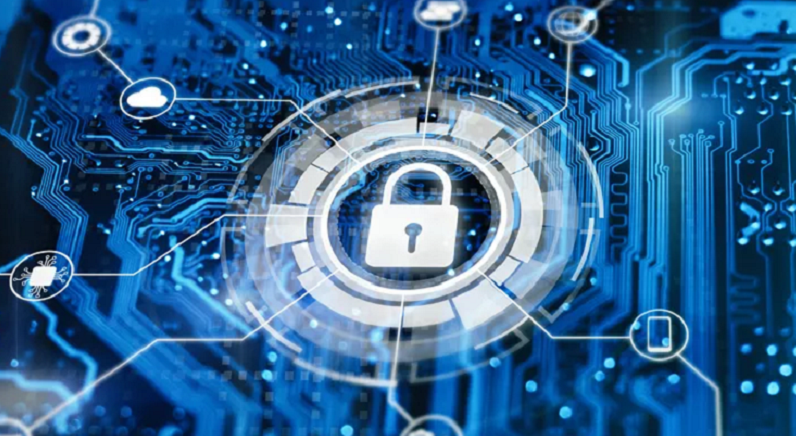
Genealogy, the study of family history and lineage, often involves uncovering a wealth of personal data. While the discovery of ancestral connections can be deeply fulfilling, it also raises significant privacy concerns. This leads to a delicate balance between gathering extensive historical data and respecting the privacy of individuals represented in that data.
Contents
- Understanding Privacy in the Context of Genealogy
- Historical Context and Privacy Challenges for Genealogy Information
- Privacy Laws and Regulations Affecting Genealogy
- Practical Challenges in Managing Sensitive Genealogy Information
- Best Practices for Handling Sensitive Genealogy Information
- References
Understanding Privacy in the Context of Genealogy
Privacy is a cornerstone of ethical genealogical research. As we explore the nuances of privacy in genealogy, we must consider what constitutes sensitive information, how it is encountered, and the legal and ethical frameworks that govern its use.
Definition of Sensitive Information in Genealogical Research
Sensitive information in genealogy includes any data that can identify living individuals or disclose personal details about deceased persons that could affect living relatives. This might encompass medical records, financial documents, legal filings, or personal correspondence. Understanding what qualifies as sensitive information helps genealogists navigate their responsibilities more effectively.
Common Types of Sensitive Information Encountered
Genealogists frequently encounter a variety of sensitive data:
Personal Identifiable Information (PII)
This includes names, addresses, social security numbers, and other details that can directly identify an individual.
Health and Medical Records
Information about an individual’s medical history, genetic conditions, or mental health status, which are often found in old medical records or family correspondence.
Financial Information
Details about personal wealth, estate documents, or financial transactions can also be sensitive, revealing more than intended about family matters.
Legal and Ethical Considerations
The handling of sensitive information in genealogy is not only a matter of personal ethics but also of legal compliance. Different countries have various laws protecting personal data, but two key principles are nearly universal:
Consent
It’s imperative to obtain consent from living relatives when using data that could impact their privacy or that of their ancestors.
Minimization
Genealogists should collect only the information necessary for their research goals, avoiding unnecessary accumulation of sensitive data.
In this section, we have outlined the foundational concepts of privacy in genealogical research, setting the stage for a deeper examination of specific challenges and solutions in managing sensitive information effectively [1].
Historical Context and Privacy Challenges for Genealogy Information
The approach to privacy in genealogy has evolved significantly over time, influenced by cultural shifts, technological advancements, and changing legal landscapes.
Evolution of Privacy Norms in Genealogy
The concept of privacy has changed dramatically since the advent of genealogical research. Initially, records were primarily in physical formats, accessible only through specific archives or family holdings, which naturally limited exposure.
Early Practices
In the early days, genealogical records were often shared informally within families or small communities without much regard for privacy. This was partly due to the limited reach of these documents.
The Impact of Technology
As technology progressed, particularly with the introduction of the internet and digital databases, the accessibility of sensitive information increased, prompting a need for stricter privacy measures.
Case Studies of Past Privacy Issues in Genealogical Research
Examining specific instances where privacy was compromised can provide valuable lessons for contemporary genealogists. These case studies highlight the consequences of inadequate privacy protections and the responses that followed.
Adoption and Illegitimacy
Cases involving the exposure of adoption records or the illegitimacy of individuals in historical records have led to familial disputes and legal challenges, underscoring the need for discretion [2].
High-Profile Families
The genealogies of high-profile or celebrity families often attract public and media attention, leading to unwanted exposure of personal data. These cases have fueled debates over the balance between public interest and individual privacy rights.

Privacy Laws and Regulations Affecting Genealogy
Navigating the complex landscape of privacy laws is crucial for genealogists to ensure their research complies with both national and international regulations.
General Data Protection Regulation (GDPR) and Its Implications
The GDPR is a pivotal regulation in the European Union that has set a benchmark worldwide for the protection of personal data. It impacts genealogical research significantly, especially when it involves the data of EU citizens, regardless of where the research is conducted.
Rights of Data Subjects
Under the GDPR, individuals have enhanced rights regarding their personal data, including access, correction, and the right to be forgotten, which genealogists must respect.
Responsibilities of Data Handlers
Genealogists handling EU citizens’ data must ensure they have lawful grounds for processing this data and that they maintain transparency with data subjects about how their information is used.
The Health Insurance Portability and Accountability Act (HIPAA) in Genealogy
While HIPAA primarily protects health information in the U.S., its implications for genealogists can be indirect but significant, particularly when dealing with medical records that might reveal information about genetic relationships.
Access to Deceased Individuals’ Information
HIPAA regulations limit access to an individual’s health information for 50 years after their death, which can affect genealogists researching recent ancestors or relatives [3].
Implications for Genetic Research
Genealogists must be cautious when dealing with any medical or genetic information uncovered in their research to avoid potential HIPAA violations.
Other Relevant National and International Laws
In addition to GDPR and HIPAA, various countries have their own privacy laws that can impact genealogical research.
National Differences
Countries like Canada, Australia, and others have their specific regulations that protect personal information, which may differ significantly in scope and enforcement from GDPR and HIPAA.
International Research Considerations
Genealogists working with international records need to be aware of the laws applicable in the countries where the records originate, as well as in the country where the research is being conducted.
Practical Challenges in Managing Sensitive Genealogy Information
In the realm of genealogy, managing sensitive information involves not only understanding legal obligations but also tackling practical challenges that arise during research.
Digital Versus Physical Records: Differences in Privacy Concerns
The shift from physical to digital records has transformed genealogical research, each format presenting unique privacy challenges.
Accessibility and Security
Digital records are easily accessible but require robust cybersecurity measures to prevent unauthorized access. Physical records, while less susceptible to mass breaches, can still be lost, stolen, or damaged if not properly secured.
Longevity and Control
Digital data can be perpetuated indefinitely, making it hard to control once shared. Physical documents, on the other hand, deteriorate over time but offer more controlled access through physical possession [4].
The Role of Technology in Protecting or Compromising Privacy
Technology plays a dual role in the privacy of genealogical information, both as a protector and a potential risk factor.
Encryption and Secure Storage
Technological tools offer ways to encrypt and securely store sensitive information, protecting it from unauthorized access.
Risks of Data Leaks and Hacks
Conversely, the reliance on technology increases the risk of data breaches, where hackers could access large volumes of sensitive data with a single successful attack.
Examples of Breaches and Their Impacts
Real-world examples highlight the vulnerabilities and consequences of failing to adequately protect sensitive genealogical data.
Database Hacks
Cases where genealogical databases were hacked, resulting in the exposure of personal details of millions of individuals, demonstrate the scale of potential privacy violations.
Misuse of Data
Instances of sensitive information being used for identity theft or other malicious purposes underline the importance of stringent privacy practices in genealogy.
Best Practices for Handling Sensitive Genealogy Information
Handling sensitive information in genealogy requires meticulous attention to privacy and ethical standards.
Obtaining Consent and Managing Permissions
Consent is a fundamental aspect of ethical research, particularly when handling personal information that could affect living individuals or their relatives.
Clear Communication
It is crucial for genealogists to clearly communicate the purpose of their research and how the information will be used, ensuring that consent is informed and explicit.
Documentation
Maintaining records of consent, including who has agreed to what extent of data use, is essential for transparency and accountability.
Anonymization Techniques for Sensitive Data
Anonymizing data is a critical method for protecting privacy while still allowing for meaningful genealogical research.
Removing Identifiable Details
Techniques such as redacting names, dates, and other personal identifiers can help minimize the risk of compromising individual privacy.
Use of Pseudonyms
In some cases, replacing real names with pseudonyms can allow data to be shared within the research community without exposing personal details.
Implementing Secure Data Storage and Access Controls
Secure data management is imperative to prevent unauthorized access and ensure data integrity.
Digital Security Measures
Using strong encryption, secure servers, and regular security audits can help protect digital records from breaches.
Physical Security for Paper Records
For physical documents, secure storage solutions such as locked filing cabinets or safes, and controlled access to these storage locations, are necessary.
References
[1] Privacy Issues for Family Historians
[2] The Ethics of Genealogy: Understanding and Respecting Privacy
[3] Implications of data protection legislation for family history
[4] Privacy Issues with Online Trees – Avotaynu Online

